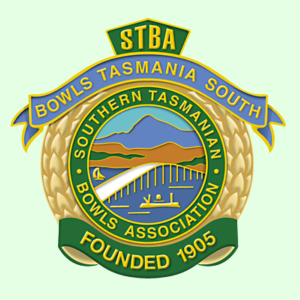
Disability Bowls Classifications
The following is an email sent to all Tasmanian Bowls Clubs by Bowls Tasmania:
Dear Club Secretaries
Lawn bowls is one of the most inclusive sports in Australia and clubs sometimes forget about disabled persons when they are trying to attract new bowlers to their club. I am writing to you to provide some details about disability bowls classifications to try and build awareness of the classifications and the options available for disability bowlers within your club.
Bowls Tasmania conducts State Championships for disabled bowlers as part of Gala Week in March each year, and Bowls Tasmania enters a team in the Para National Sides Championships which are held as part of The Nationals each October. A number of disabled players also travel to Queensland each year in June to participate in various disability championships which are held as part of the Australian Open Championships.
Disability bowlers are extremely talented and are a wonderful group of people to be involved with. Bowls Tasmania would encourage all clubs to actively work to attract people with disabilities to join your club.
Are Classifications required?
Players competing in different disability events at State, national and international level require a classification to play. There are four disability groups:
- Players with a visual disability.
- Players with a physical disability.
- Players with an intellectual disability.
- Players with a hearing disability.
No classifications are required to compete at club or region level.
Why are Classifications required?
The classification system provides for fair and equitable competition at all levels.
Bowlers with a visual disability
Classification procedure for bowlers with a visual disability:
- Bowlers with a visual impairment have their own classification procedure that is governed by the Australian Blind Bowls Association (ABBA)
- The examination and evaluation of the visually impaired lawn bowler must be performed by a certified Ophthalmologist or Optometrist with experience in low vision assessment. The evaluation requires the measurement of each eye individually of best corrected visual acuity and field of vision.
- The assessment shall be carried out by assessors independent from the player being assessed. A classifier, appointed by ABBA, will check the forms, and recommend a classification. This will be submitted to the International Blind Bowlers Association (IBBA) for confirmation.
- Bowlers with a visual impairment are classified based on their vision and classified as B1, B2, B3 or B4.
- For further information on sight classification procedures for bowlers with a vision impairment, please contact ABBA via its website.
Bowlers with a physical disability
Classification procedures for bowlers with a physical disability:
- A bowler must provide evidence of their medical condition which leads to their functional limitations. An International Bowls for the Disabled (IBD) Certificate of Diagnosis – available from the Bowls Tasmania website – must be completed by the bowler’s doctor prior to the classification being performed.
- IBD’s medical assessor in Tasmania, Dr. Claire McGrath, will review the Certificate of Diagnosis to ensure that the bowler has an eligible condition.
- Bowlers are required to attend a classification event – which occurs bi-annually in February and March each year.
- The IBD classification involves a bench test (medical) and a bowling action test (technical) plus observing the bowler in a game of bowls for a classification to be complete.
- The bench test is performed by a medical classifier (usually a doctor) who examines all relevant movements and muscle groups. Bowlers are then put into classes according to their level of function.
- The bowling action test is done on the green by a technical classifier who assesses the bowlers functional strength and balance in the delivery of the jack and a bowl.
- After observation in a game, the medical and technical classifiers in consultation will allocate the bowler a disability class (B5, B6. B7 or B8) and provide the bowler with a card showing these details.
Bowlers with an intellectual disability
Classification procedure for bowlers with an intellectual disability:
- Bowlers with an intellectual disability are required to be registered with Sport Inclusion Australia (SIA).
- Bowlers must complete the National Eligibility Application form and return it to SIA.
- The application form and a guide on how to complete the application can be found on the Bowls Tasmania website.
Bowlers with a hearing disability
Classification procedure for bowlers with a hearing disability:
- Bowlers with a hearing disability are required to be registered with Deaf Sports Australia if they wish to participate in national and international sanctioned deaf sporting events.
- Bowlers must complete the Classification Form with a copy of their latest audiogram and return it to Deaf Sports Australia.
- Deaf Sports Australia will forward the Classification Form to its audiologist at Expression Audiology who will then confirm a bowlers eligibility.
- The Classification Form and a guide on how to complete it can be found on the Bowls Tasmania website.
For further information
For further information about disability bowlers, contact the Chair of the Bowls Tasmania Disability Bowls Tasmania Committee, Gena Short, by email on ginmay71@gmail.com or mobile 0499 994 239.
Kind regards
Rob McGuire
Chief Executive Officer
Bowls Tasmania
